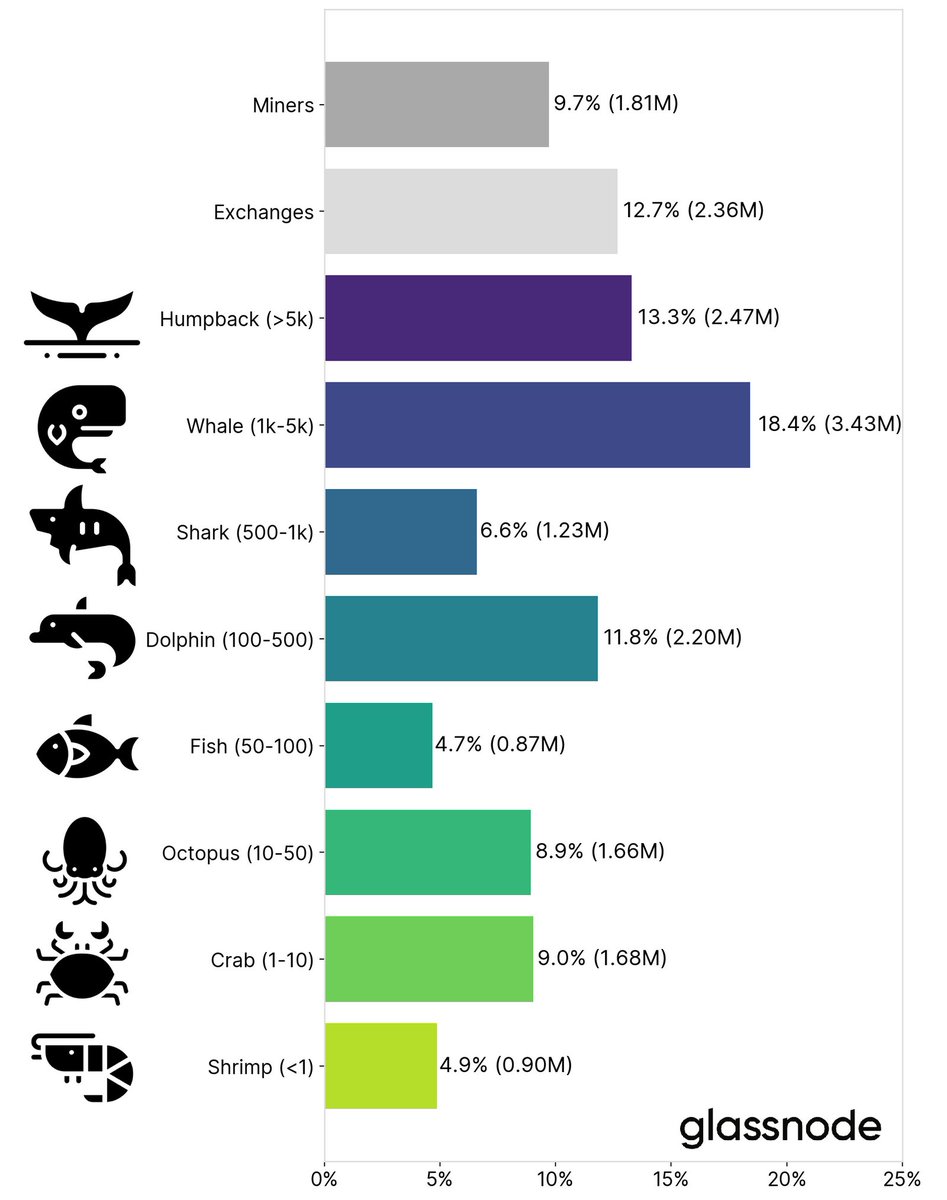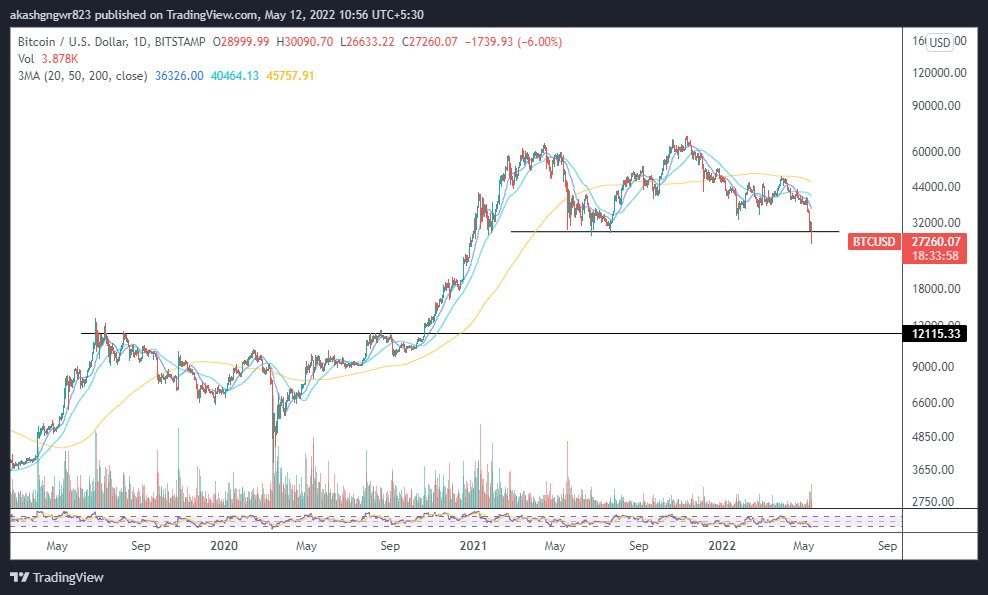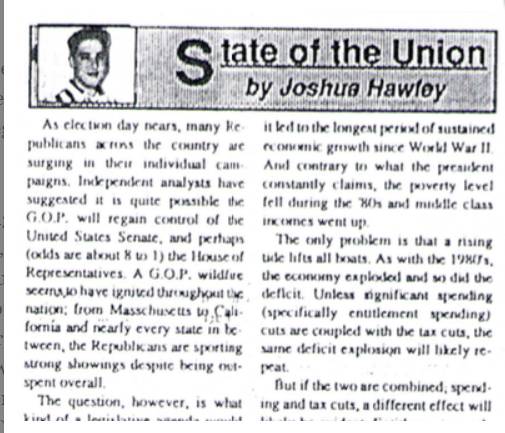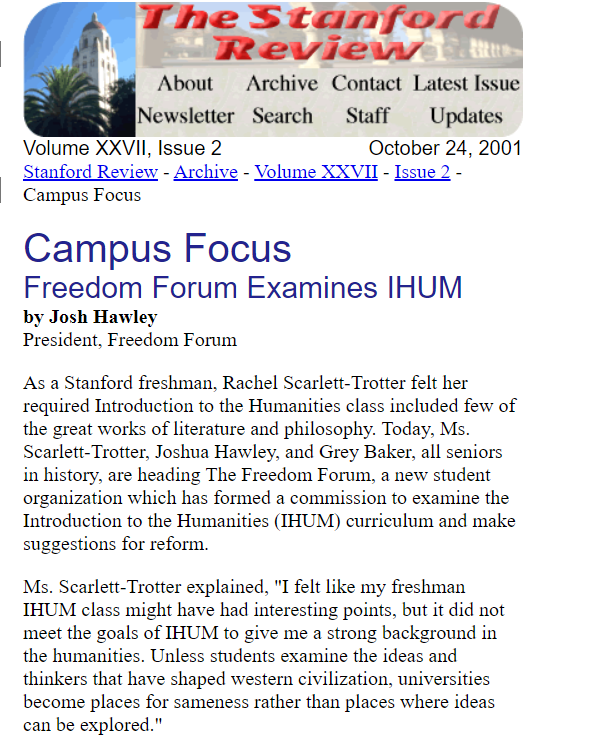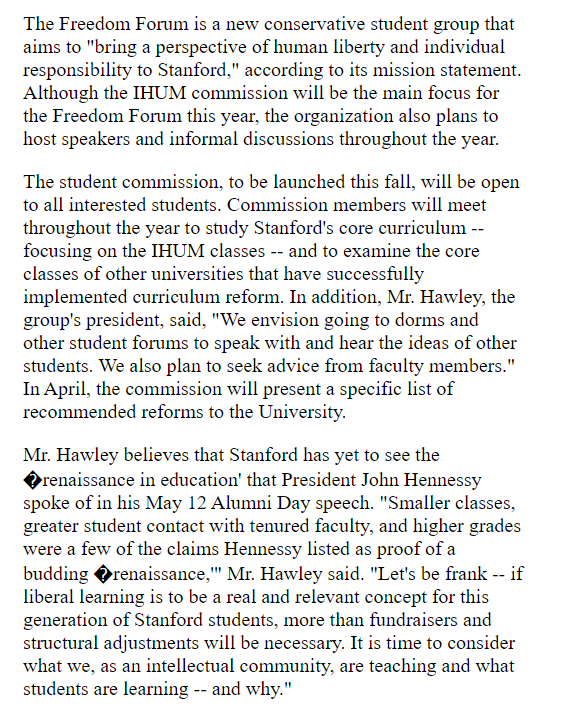'It is a speculative asset, by any account. If you look at the price movements... '
It starts with an economic price perspective and we can learn that ECB is closely monitoring this price movement as one of the many indicators.
So we are in the classic central bank frame 2/32
'Those who thought it would turn into a currency. Sorry, it is an asset not a currency.'
Here she summarises a classic debate on what is currency and what is needed for that. Based on the holy three: unit of account, means of payment, store of value. 3/32
The summary is classic, but too narrow and does not incorporate the wider financial history viewpoints on money, currencies and the way we pay. 4/32
ECB overlooks the de facto unit of account role of bitcoin, having been used to 200 years of having cash around whic is both the unit of account and a means of payment. 5/32
In this book Davies outlines that there are far more than 3 functions for money. He highlights differences between primitive money versus modern money.
https://t.co/UQzQtETM2E 6/32
'bitcoin fails as a currency', shows a limited perspective on currency.
History has also seen playing cards been used as a currency.
->
https://t.co/XLU3shkADk And as a unit of account bitcoin may be much further ahead than
@lagarde realises. 7/32
A Dutch example: trade and payments in Dutch history (17th century) were done in denominations of 'Flemish pounds' which did not exist in real life.
Bitcoin being used as a central currency/unit of account amids a range of other digital coins is quite similar. 8/32
The ECB-perspective is too narrow and thereby overlooks the role of bitcoin as an open source public good. This role significantly adds to its value, but not necessarily to its price.
See the thread here:
https://t.co/XsirnRwO7N 9/32
Then
@lagarde moves on:
'which has conducted some funny business'
'totally reprehensible money laundering activity'
Here, the narrow FATF-perspective comes into play. Because analytically, this statement is valid for cash, fiat currency and bank behaviour as well. 10/32
To me, this flags that we are about to hear news from the powerful anti-money laundering lobby.
Do note that this anti-money laundering perspective has some serious democratic and analytical errors.
See ->
https://t.co/7WpscAWD7I 11/32
'There has to be regulations and this has to be applied and agreed upon.'
It is flawed to dismiss this as a classic central bank argument, with them only having one flavour of icecream (regulation)
Society by definition regulates what if finds important and rightly so. 12/32
'Regulation needs to be done at a global level because if there is an escape, that escape will be used.'
Here the statement becomes interesting as it shows the desire to close the escape routes.
But are we talking AML-rules, stablo-coin rules, what is it ? 13/32
The regulatory process of setting rules via G7 - G20 and then enlarging them is mentioned and:
'FATF is clearly an organisation that has expanded in that respect'
So it sounds as a focus on money laundering regulations. And effectively the virtual asset work by the FAT. 14/32
So let's look at this FATF report on virtual assets and where there is a mention of escape routes. I guess in crypto-context this meens peer-2-peer then?
https://t.co/MFNOPuYAPj 15/32
The concern of regulators is thus the coexistence of forms of stablecoins and self-owned wallets (or in their terms: unhosted wallets, as not hosted by regulated institutions).
And do note: 'address risk in a forward looking manner', meaning anticipation by supervisors. 16/32
Next up the FATF-report highlights that peer-2-peer tools remain unregulated so far, but national authorities can of course choose to not register or license virtual asset players and couple this to the use of 'unhosted' wallets.
And this is what we start to be seeing. 17/32
Look at the situation in Switzerland where FINMA regulates libra/DIEM and the first additional non-coordinated rules came into play per august 2019.
Peer-2-peer wallets require verification of beneficiary !
https://t.co/3mji8RBmw7 18/32
The Dutch central bank - in september 2020 - suddenly required beneficiary verification and checking the ownership of selfhosted wallet as as a registration requirement.
Doing pro-actively what FATF suggested.
https://t.co/NeHZMrH1wv 19/32
The requirement all of a sudden hit the 38 companies that were registering as a virtual asset service provider. Issued 2 months before a registration deadline (close shop if unregistered).
A knife on the table.
https://t.co/v5KvSoFH91 20/32
Some 25 out of 38 registering companies were forced to comply and desired to know the formal basis of this rule. Central bank said: sanctions law, but it is not there.
So they wrote a joint letter on Nov 2.
https://t.co/wQJ9xG8oQu 21/32
The letter remains unanswered even today, 2 months later and 15 of the registering companies in the Netherlands were forced to comply with it.
https://t.co/Ur1l72AgXo 22/32
More specifically one of the Dutch crypto players has announced it will bring the last minute requirement before a judge, citing it's ineffectiveness, infringement on privacy and disproportionality. 23/32
Meanwhile in the US, things started to move as well. Coinbase was the first company to indicate that government sought to introduce beneficiary information and verification rules for selfhosted wallets.
https://t.co/OVDV5J7L3J 24/32
And then, just before Christmas, the FINCEN figured it would be a good idea to use a consultation period of 2 weeks, outlining the proposed rules. 25/32
In essence the same rules as FINMA and DNB, although slightly more risk based by the use of thresholds above which the rules apply.
https://t.co/AV5j1yqNWu 26/32
Despite the brief time and the holiday period 7500+ comments were being submitted to the FINCEN. Feel free to have a look here:
https://t.co/1mEaiUxlqH More responses came in at the FINCEN than ever received before. 27/32
The comments raised fundamental concerns in terms of contents and due process. How can FINCEN limit the consultation period in this way?
https://t.co/ZiRS7zrlcF 28/32
A good thing is that FINCEN is indeed extending the consultation period now.
https://t.co/NKZixJlksK But it becomes clear what is meant with 'address risk in a forward looking manner' 29/32
So, let's move slowly back to the speech of
@Lagarde. I think it gave us an open insight into the desire to make sure that no escape routes are present for bitcoin/crypto.
It tells us there is a strong FATF-inspired objective to crack down on selfhosted wallets. 30/32
I hope the FATF will take note of the many responses that have been sent to FINCEN and to the ongoing discussion that will become visible in the Netherlands.
My full FINCEN response:
https://t.co/OTMlwgVqHy 31/32
Indeed, when it comes to things/coins of value, regulation may be justified.
Still this must be proportional and within the bigger framework of human rights protection.
See European Data Protection Board ->
https://t.co/Y2dpZ1a5ux 32/32











